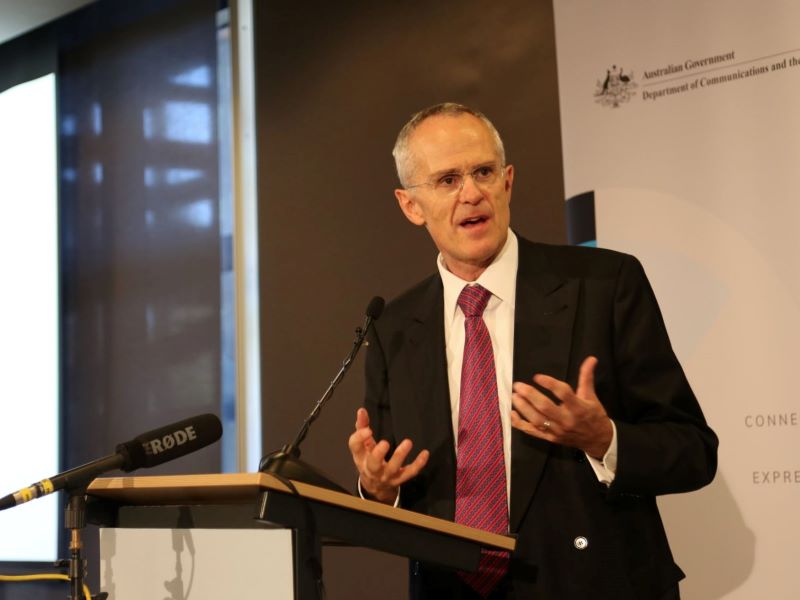Australia is falling behind Europe in its efforts to address the market power of Big Tech gatekeepers and boost online safety through legislative reforms, according to former head of the competition watchdog Rod Sims.
Mr Sims, who spent a decade as chair of the Australian Competition and Consumer Commission until his departure last year, told a parliamentary inquiry on Tuesday that digital platforms are “effectively not regulated” despite years of piecemeal reform, and that greater regulation will be needed.
Having recently returned from Brussels and London, Mr Sims said the federal government should take heed of key legislative reforms adopted by the European Parliament over the last year, which has meant Europe is “racing way ahead of us”.
“Australia needs to have a very good look at what the Europeans are doing with both the Digital Markets Act and the Digital Services Act,” he told a parliamentary inquiry into promoting economic dynamism, competition and business formation on Tuesday.

The Digital Markets Act (DMA) and the Digital Services Act (DSA) were adopted by the European Parliament in July last year to enforce new obligations on digital services providers, namely online marketplaces, social networks, content-sharing platforms and app stores.
Obligations under the DMA, which will come into effect in March 2024, include a ban of self-preferencing – a practice whereby a provider promotes their offerings over those of a competitor – and processing users’ personal data for targeted advertising without explicit consent.
The DSA, meanwhile, includes a range of transparency measures for very large online platforms, including access to the algorithms used, as well as a ban targeted adverts to children and those based on special characteristics of users, that come into force in June.
Mr Sims backed similar recommendations proposed by the ACCC last September for new consumer protection laws and enforceable service-specific codes of conduct, which he said were akin to early efforts to regulate the telecommunications sector.
“That facilitated competition where essentially we had none before and this is just doing the same thing for digital platforms that we did for telecommunications many years ago,” Mr Sims told the inquiry.
The laws recommended by the ACCC to regulate digital platforms include mandatory dispute resolution processes supported by a new digital platform ombudsman scheme, as well as the requirement to verify certain business users, such as advertisers, app developers and merchants.
The codes, meanwhile, would seek to prevent self-preferencing, tying and the existence of exclusive pre-installation arrangements by Big Tech giants, which have previously been fined for such practices in Europe.
The government is still considering the recommendations, but Assistant Minister for Competition, Charities and Treasury Andrew Leigh has separately been building the case for competition reform.
Mr Sims also advocated for the merger reforms proposed by ACCC chair Gina Cass-Gottlieb last month to bring Australia’s regime in line with those of the United Kingdom, Europe, United States and Canada.
“We have, I think, the weakest merger regime of any country we compare ourselves to,” Mr Sims told the inquiry.
“All those other countries have a regime where you’ve got to notify the regulator, you’ve got to get some form of approval before you can proceed. Our law doesn’t do any of that. It simply says don’t have a merger or acquisition that is likely to substantially lessen competition.”
Asked whether addressing competition concerns in the digital sector would stop economic dynamism, Mr Sims pointed to Google’s dominance in the search engine market.
“Google has 95 per cent of search – that’s pretty close to a monopoly,” he said.
“They have an agreement with Apple where they’ll be the default search engine on Apple. On non-Apple devices, they own Android, which is the operating system, so they’ve got the market sewn up.
“So, I think if you’re targeting your regulation around the big entrenched players, then you’re very unlikely to do harm to dynamism, you’re very likely to promote it.”
Last week, the ACCC found that Meta has maintained significant market power in Australia despite the arrival of challenger social media platforms like TikTok and BeReal, commenting that its competitive constraints are “weak”.
Do you know more? Contact James Riley via Email.

